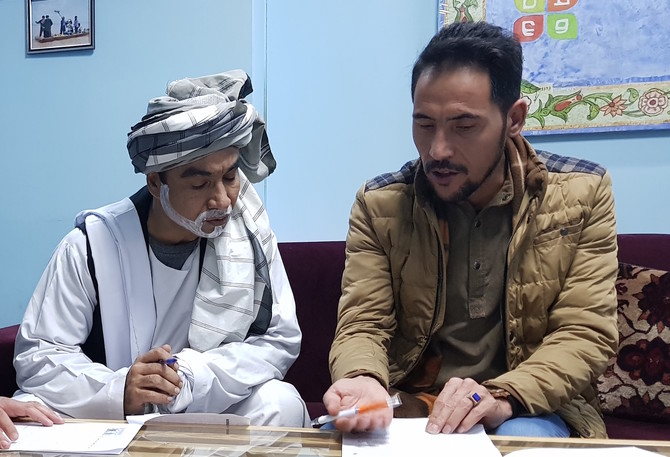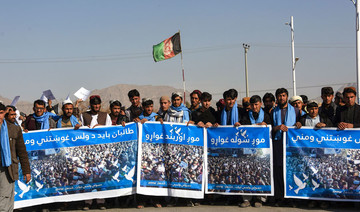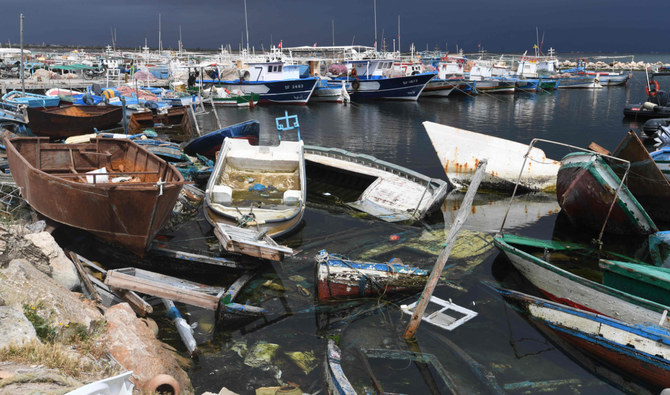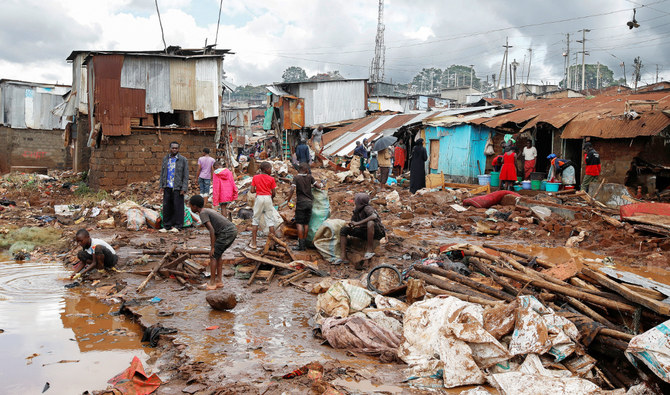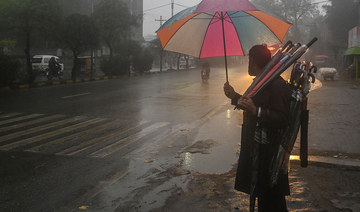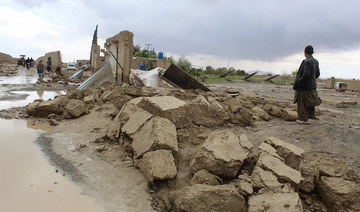KABUL: In a war-torn country desperate for change and stability, a satirical TV show is providing some much-needed comic relief to residents of Afghanistan who are choosing to switch off their thoughts, fueled by the uncertainty that surrounds the future of their country, for one hour every Friday.
By airing weekly episodes that are avidly watched by millions of Afghans across the country, “Shabake Khanda,” or the Laughter Network accurately represents how Afghanistan is governed, bringing to fore everyday issues faced by the people.
Shot in Kabul and its surrounding areas, the privately funded program by Tolo TV went on air five years ago, with some of its episodes garnering millions of views at a time.
It has since amassed a legion of fans, with actors of the show saying that the format works because the topics touch upon everyday issues, such as disputes between couples, the dilapidated state of law and order in the country, and the government’s inefficiency to tackle graft, to name a few.
“The program is widely popular as it exposes in a satirical form the problems that exist in the government and the unruly people. We eagerly wait for Friday night to watch it together with our family. It is funny and at the same time scolds unlawful people,” Nafisa Ebadi, a government employee and a mother of three, said.
No one is spared with the parody poking fun at corrupt bureaucrats, warlords, and even the president — Ashraf Ghani. While one actor impersonates how the president becomes peevish and dramatic in a sticky situation; another narrates the power tussle between Ghani and his Chief Executive – Abdullah Abdullah.
Siar Matin, an actor who is widely recognized for his impeccable impersonation of Abdullah, said that humor is the need of the hour, especially at this time of political uncertainty and torpidity.
“I feel happy about what I am doing because I am serving the people who need entertainment and relief from miseries they face routinely. At the same time, through comedy, I want to show the shortcomings in the society and government that have to be dealt with,” Matin told Arab News.
Producers of the show said that the program has also become an indirect platform for residents to voice their grievances with several calling in to inform them about government apathy or unruly behavior at the hands of officials. This often serves as fodder for writers who use real-life experiences to shape the script for their future episodes but only after extensive research and by adding a healthy dose of fiction to facts.
One such episode – based on a true story – narrates an incident where family members of a top security commander, and his body guards, went on a firing spree to celebrate the engagement of his son in Kabul. “The commander was dismissed the very next day after the show was aired,” Ibrahim Abed, who impersonates Ghani on the program, told Arab News.
Another episode poked fun at a powerful MP whose electricity had been cut off after he had failed to pay his bills. “If you don’t switch it back on, I will switch you off,” an actor mimicking the MP says while threatening a power company official in one of the most popular episodes. The reality, however, couldn’t be farther from the truth with the lawmaker getting away by not paying his dues.
That, however, doesn’t deter the actors who — despite receiving threats from viewers and officials — said that they would continue with their line of work unabated.
“Ghani” Abed says he was once stopped by several men wielding an American assault rifle who threatened to kill him if he did not stop impersonating a specific leader.
“I told them that you won’t be able to kill me with this gun because after firing couple of rounds, the rifle jams and I am strong enough to resist and survive your two bullets easily. They started laughing at my argument by conceding that the rifle was not so efficient and that was the end of the issue. I managed to avoid a possible threat through a joke,” he said.
Actors said the popularity of the program was another reason for them to keep going. “We have great feedback from people across the country and even from Afghans who live abroad and are able to watch the shows,” Qasim Taban, another actor, said.
Despite Afghan society being an extremely conservative one, women are not banned from working in TV and films. However, on the Laughter Network — keeping the sensitivities and nuances in mind — the responsibility to tell their side of the story invariably falls on make actors who dress up and essay the role of women on the show.
It shows a side of Kabul which is a stark contrast from the Afghanistan of the 1960s where women had more educational opportunities than ever before, and seclusion was optional.
But in a country maimed by war and limping back to normalcy, that’s one issue which, at least for now, is being pushed to the backburner.
More than two million people died and nearly six million were forced to flee the country since the war broke out in Afghanistan nearly 40 years ago. With peace talks in place between the US and the Taliban for ways to end the conflict, there’s hope that the wounds may heal soon even if the scars remain.
For now, the Afghans are thankful that because of the show, there’s at least something to laugh about.
“I like the shows so much that I have to rush to find a TV for watching it if am out of the house while it is aired. People are exhausted with so many shortcomings here, so people can vent their frustration and by not thinking about it,” Tamim Ahmad, a 30- year-old baker said.


